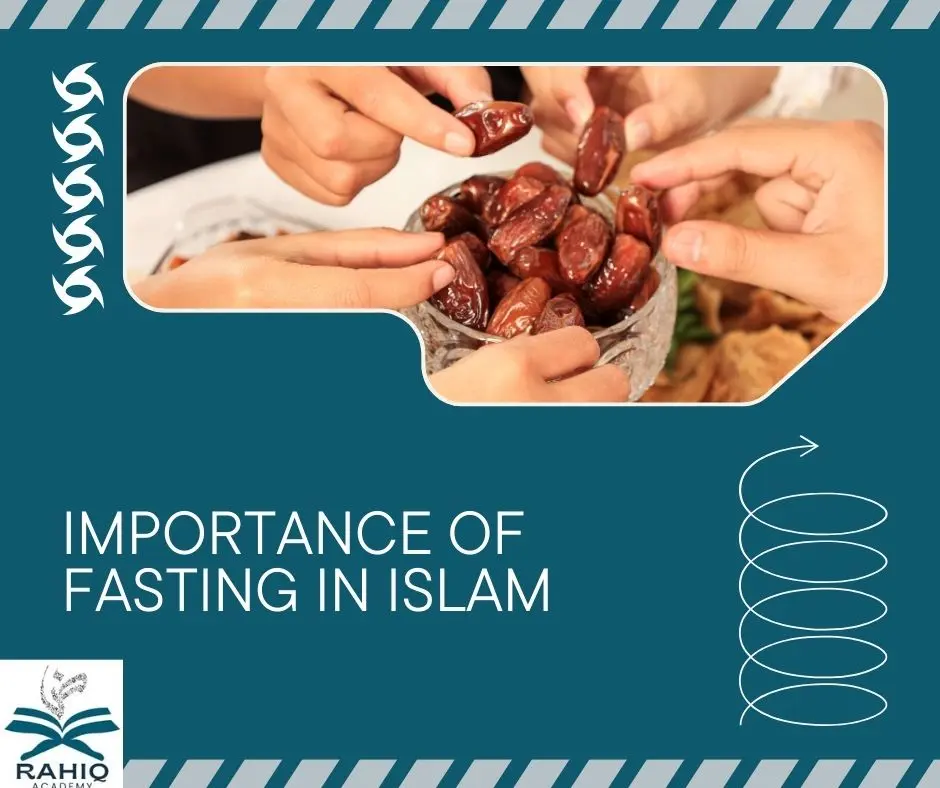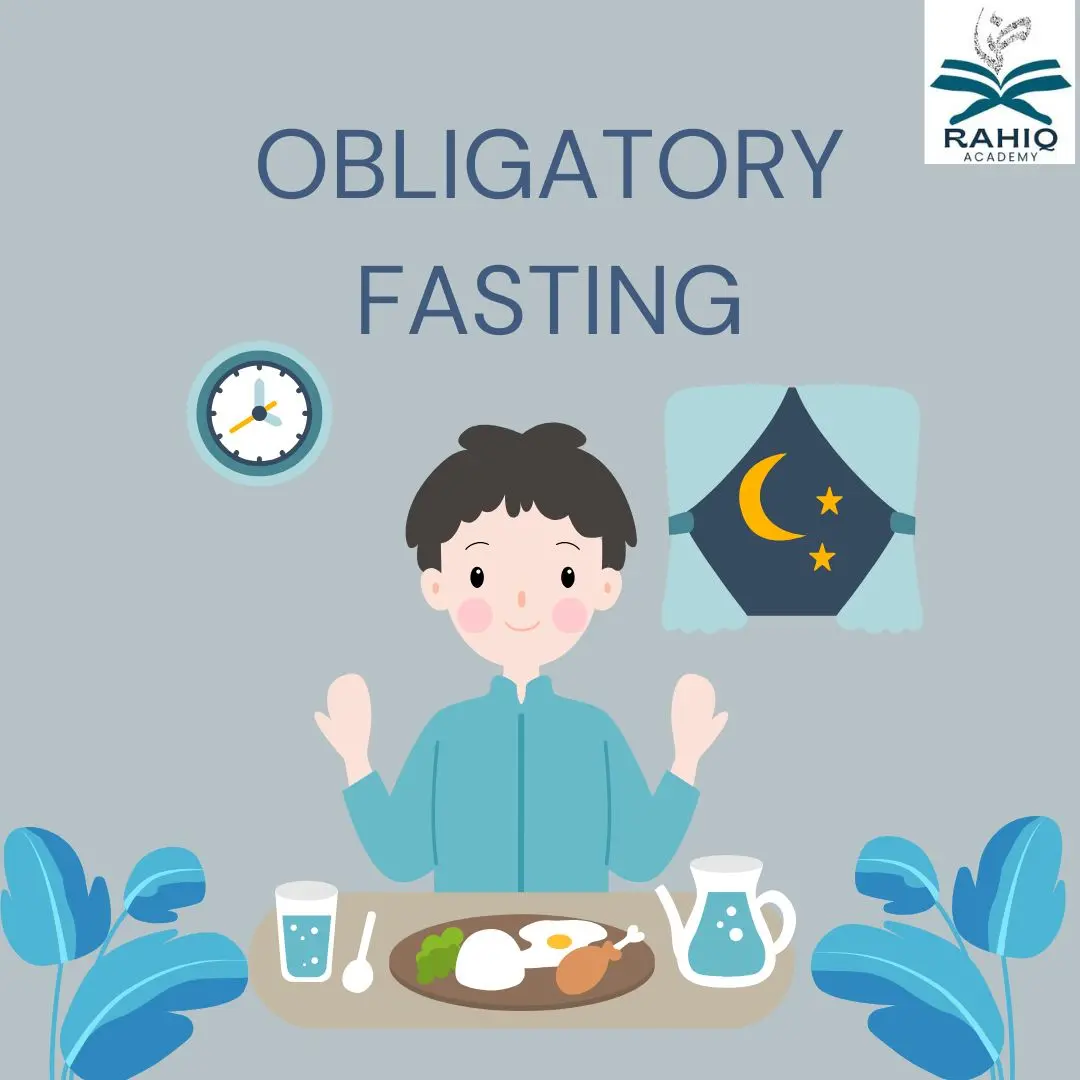Rules of fasting for Ramadan are essential for a valid and rewarding fast. Did you know that, according to Pew Research (pewresearch.org), 1.9 billion Muslims fast every year during Ramadan? But are you sure you’re doing it right? Many people unknowingly break their fast. Understanding the key rules, prohibitions, and exemptions helps you observe fasting correctly. Let’s explore the essential guidelines to ensure a meaningful Ramadan.
What Is the Definition of Fasting in Islam?
Definition of Fasting refers to abstaining from food, drink, and specific actions for a set period. In Islam, fasting is a key act of worship. It requires avoiding eating, drinking, and sinful behavior from dawn until sunset. The rules of fasting for Ramadan include maintaining good conduct, increasing prayer, and seeking forgiveness. Fasting helps build self-control, patience, and spiritual growth. It also strengthens faith and empathy for those in need. Muslims fast to obey Allah and purify their hearts.
Importance of Fasting in Islam: 5 Key Reasons Every Muslim Should Know

There is more to fasting than just avoiding food and liquids. It is a spiritual practice that strengthens faith, builds discipline, and teaches self-control. As observed during Ramadan, it purifies the soul, promotes gratitude, and fosters unity within the Muslim community. Beyond worship, fasting offers health benefits, enhances patience, and deepens empathy for those in need. Here’s why fasting holds immense value in Islam.
1. Strengthens Faith and Spiritual Growth
- Increases devotion by focusing on prayer and worship.
- Encourages self-discipline and strengthens self-control.
- Purifies the heart and helps in seeking forgiveness.
- Enhances connection with Allah through reflection and gratitude.
- Develops mindfulness and sincerity in worship.
2. Builds Character and Self-Discipline
- Teaches patience and strengthens willpower.
- Helps overcome bad habits and negative behaviors.
- Encourages self-restraint from worldly temptations.
- Promotes gratitude by making people appreciate blessings.
- Strengthens commitment to personal and spiritual goals.
3. Fosters Social Unity and Empathy
- Creates a sense of togetherness among Muslims worldwide.
- Encourages acts of kindness and charity.
- Develops empathy by experiencing hunger like the less fortunate.
- Strengthens family and community bonds during Iftar gatherings.
- Promotes equality by removing social differences.
4. Improves Physical and Mental Health
- Aids digestion and detoxifies the body.
- Supports healthy metabolism and weight management.
- Enhances mental clarity and reduces stress.
- Strengthens the immune system when done correctly.
- Encourages a healthier lifestyle beyond Ramadan.
5. Reinforce the Rules of Fasting for Ramadan
- It requires abstaining from food, drink, and sinful behavior from dawn to sunset.
- Encourages maintaining good conduct and avoiding negative speech.
- Promotes increased prayer and reading of the Quran.
- Emphasizes the importance of seeking forgiveness.
- Strengthens self-discipline, leading to lifelong positive habits.
Fasting is not just a ritual; it is a transformative experience that shapes the soul, body, and mind. The importance of fasting in Islam lies in its ability to strengthen faith, build character, and foster compassion. By following the rules of fasting for Ramadan, Muslims maximize their rewards and spiritual growth, making fasting an essential part of Islamic life.
11 Rules of Fasting: What Should You Know for a Valid Ramadan Fast?
For Muslims, one of the most significant religious obligations is to fast during the month of Ramadan. It involves more than just avoiding food and drink; it requires self-discipline, patience, and adherence to specific rules. To ensure your fast is valid and rewarding, follow these essential guidelines.
Basic Rules of Fasting
- Intend to fast before Fajr: You must make your intention to fast before dawn. Saying it aloud is not required.
- Avoid smoking or vaping: Inhaling any substance on purpose breaks the fast.
- Begin fasting at Fajr and break it at Maghrib: You must avoid food, drink, and smoking during these hours.
- Do not eat or drink: Even a small amount of food or water invalidates your fast.
- Avoid marital relations during fasting hours: Any intimacy that causes ejaculation breaks the fast.
- Refrain from intentional vomiting: If you vomit on purpose, your fast becomes invalid.
- Do not take oral medication: Pills, syrups, and nutritional supplements break the fast. However, injections, eye drops, and non-nutritional IV fluids do not
Additional Rules of Fasting
- Deliberate Breaking of Fast Requires Expiation – If someone deliberately eats or drinks without a valid excuse, they must make up the fast and offer kaffarah (expiation), For example, feeding 60 impoverished individuals or fasting for 60 days.
- Using Non-Nutritional Injections is Allowed – Medical injections that do not provide nutrition (such as vaccines or painkillers) do not break the fast. However, IV drips providing hydration or nutrition invalidate fasting.
- Maintaining Good Behavior and Avoiding Arguments – Fasting is not just about food; it also includes avoiding anger, arguments, and bad behavior to maintain a spiritually rewarding fast.
- Performing Extra Worship and Charity – Fasting is an opportunity for increased prayer, Quran recitation, and charity, which enhance the spiritual benefits of fasting.
What Does Not Break the Fast?
- Unintentional eating or drinking – If you forget and eat or drink, continue fasting.
- Swallowing saliva – Normal saliva does not affect the fast.
- Brushing teeth – Using a dry toothbrush or miswak is allowed. Avoid swallowing water.
- Rinsing mouth and nose – Allowed during wudu, but avoid swallowing water.
How to Break the Fast Correctly
- At Maghrib (sunset), break the fast immediately – Do not delay.
- Use dates and water first – This follows the Sunnah before eating a full meal.
- Make a supplication (Dua) before eating – The time before iftar is special for prayers.
Following these fasting rules helps ensure your fast is valid and spiritually rewarding. Fasting is more than just abstaining from food—it is a time for self-reflection, worship, and strengthening faith.
11 Additional Prohibitions in the Rules of Fasting: Are You Avoiding These Mistakes?
Ramadan fasting involves more than just abstaining from food and liquids. It requires self-discipline, patience, and mindfulness in daily actions. Many common habits can reduce the spiritual benefits of fasting. To ensure your fast remains pure and rewarding, be mindful of these 11 additional prohibitions that could affect its validity.
1. Avoid Lying and Gossiping
False speech and spreading rumors weaken the rewards of fasting. Keep conversations honest, kind, and meaningful.
2. Do Not Argue or Raise Your Voice
Fasting is about patience. Avoid fights, shouting, or responding to negativity with anger. Stay calm and collected.
3. Skipping Prayers Reduces the Reward of Fasting
Fasting is incomplete without daily prayers. Prioritize your five daily prayers to strengthen your connection with faith.
4. Avoid Listening to Inappropriate Content
Music, gossip, or content that distracts from worship can shift focus away from Ramadan’s spiritual purpose. Choose uplifting activities instead.
5. Limit Excessive Entertainment
Spending too much time on TV, social media, or gaming takes away from prayer, Quran reading, and self-reflection. Balance your time wisely.
6. No Smoking, Vaping, or Inhaling Smoke Intentionally
Smoking and vaping break the fast. Avoid exposure to unnecessary fumes or substances that enter the body.
7. Do Not Delay Breaking the Fast
Once Maghrib arrives, break your fast immediately. Follow the Sunnah by starting with dates and water before a full meal.
8. Overeating at Iftar or Suhoor Weakens Worship
Eating too much can cause laziness and make night prayers difficult. Eat moderately for better focus and energy.
9. Wasting Time on Unproductive Activities
Ramadan is a time of self-improvement. Avoid excessive idle talk, unproductive tasks, and distractions from worship.
10. Neglecting Charity and Helping Others
Ramadan is not just about personal fasting. Give charity, support the needy, and engage in acts of kindness to maximize rewards.
11. Ignoring the Sunnah of Suhoor
Skipping the pre-dawn meal weakens the body and can make fasting harder. Suhoor provides the necessary energy and follows the Prophet’s guidance.
By avoiding these actions, fasting becomes more than just physical restraint—it turns into a journey of spiritual growth, patience, and self-discipline. Stay mindful and make every day of Ramadan meaningful.
Who is Required to Fast? 5 Key Conditions for Ramadan Obligation
Who is Required to Fast? Fasting in Ramadan is a sacred duty in Islam, but not everyone is required to observe it. Islam provides clear conditions for those who must fast and those who are exempt. These rules ensure that fasting remains a spiritual commitment without causing harm. Below are the 5 key conditions that determine who must fast.
Who Must Fast?
- Muslim Adults: Any Muslim who has reached puberty is required to fast. Children are encouraged to practice but are not obligated.
- Mentally Sound Individuals: Those who have full control of their mental faculties must observe fasting. Those with severe mental illness are excused.
- Physically healthy individuals: Those in good health who can fast without harm are required to fast. If fasting endangers health, it can be postponed.
- Residents (non-travelers): Those staying in their home city must fast. Travelers on long journeys may postpone fasting and make up the missed days later.
- Women Free from Menstruation or Postpartum Bleeding: Women who are menstruating or recovering from childbirth are exempt but must make up missed fasts later.
Who is Exempt from Fasting?
- Elderly or Chronically Ill Individuals: Those who cannot fast due to permanent illness or old age are excused and must feed a poor person for each missed day.
- Pregnant or Breastfeeding Women: If fasting harms their health or their baby, they can postpone fasting and make up the missed days later.
- Sick Individuals: If fasting worsens an illness, they may delay fasting until they recover.
- Travelers on Long Journeys: Those traveling during fasting hours can skip fasting but must make up the missed days.
Fasting is a balance of spiritual devotion and practical guidance. Those who meet the conditions must observe fasting, while Islam allows flexibility for those facing hardships.
Obligatory Fasting: 5 Types Every Muslim Must Observe

Fasting is a fundamental act of worship in Islam. While voluntary fasting is encouraged, some fasts are obligatory under specific conditions. These fasts must be observed by all eligible Muslims. Below are the five types of obligatory fasting in Islam.
1. Fasting in Ramadan
- Required for all adult, healthy Muslims from dawn to sunset during Ramadan.
- Breaking it without a valid excuse requires making up the missed days or performing an expiation.
2. Making Up Missed Ramadan Fasts (Qada’)
- Required for those who missed fasting due to illness, travel, or valid exemptions.
- Must be completed before the next Ramadan begins, if possible.
3. Expiation Fasting (Kaffarah)
- Required when a person intentionally breaks a Ramadan fast without a valid reason.
- The person must fast for 60 consecutive days or feed 60 poor people as compensation.
4. Fasting for Vows (Nadhr)
- If a person makes a vow to fast for a specific reason, they must fulfill it as promised.
- Breaking a vowed fast requires expiation or a replacement fast.
5. Fasting for Atonement (Fidyah & Kaffarah)
- This applies to elderly or chronically ill individuals who cannot fast permanently.
- Instead of fasting, they must feed a poor person for each missed day of fasting.
Observing obligatory fasting strengthens faith and self-discipline. Following these guidelines ensures spiritual fulfillment and adherence to Islamic teachings.
Exemptions from Fasting: Who Is Excused from Fasting in Ramadan?
Fasting in Ramadan is a religious duty for Muslims, but Islam allows flexibility for those who face hardships. Some individuals are exempt and can either make up the missed fasts or provide compensation. Below are the key exemptions from fasting.
Who Is Exempt from Fasting?
- Children Under Puberty – Fasting is not required before puberty, but they can practice to prepare for future obligations.
- Elderly Individuals – If fasting weakens them or causes harm, they are excused and should feed a poor person for each missed day.
- Chronically Ill People – Those with permanent health conditions that prevent fasting are exempt and must provide food for the needy instead.
- Temporarily Sick Individuals – If fasting worsens their condition, they can delay it and make up the missed days when they recover.
- Pregnant Women – If fasting endangers their health or the baby’s, they can postpone fasting and make up the days later.
- Breastfeeding Mothers – If fasting affects milk production or harms the baby, they are excused and must make up the missed fasts.
- Menstruating Women – Women on their period must not fast. They should make up the missed fasts after Ramadan.
- Postpartum Women – Women recovering from childbirth are exempt and must complete their missed fasts later.
- Travelers on Long Journeys – Those traveling far distances can skip fasting and make up the missed days after returning home.
- Mentally Ill Individuals – Those unable to comprehend fasting due to severe mental illness are permanently exempt.
Islam provides ease and compassion, ensuring that fasting remains a spiritual practice without causing harm. Those who qualify for exemptions should follow the prescribed alternatives.
Which Real Hadiths Are Mentioned Regarding the Advantages of Fasting?
There is more to fasting in Islam than simply avoiding food and liquids. It purifies the soul, strengthens faith, and brings immense rewards. Several authentic hadiths highlight its significance, promising forgiveness, protection, and a special place in Paradise. Below are some of the most profound hadiths about the virtues of fasting.
Fasting erases past sins
- The Prophet (ﷺ) said: “Whoever fasts Ramadan with faith and seeks reward, his past sins will be forgiven.” (Bukhari, Muslim)
Reference : Mishkat al-Masabih 1958
Fasting leads to Paradise
- Indeed, in Paradise, there is a gate called Ar-Rayyan, through which only those who fast will enter.” (Bukhari, Muslim)
Reference : Mishkat al-Masabih 1957
The reward of fasting is with Allah
- Allah says, “Fasting is for Me, and I will reward it.” (Bukhari, Muslim)
Reference : Riyad as-Salihin 1215
In-book reference: Book 8, Hadith 225
Fasting protects from Hellfire
- Fasting is a shield that protects from sin and Hellfire.” (Bukhari, Muslim)
Reference : Sunan Ibn Majah 1639
In-book reference: Book 7, Hadith 2
Allah is fond of a fasting person’s breath.
- The smell from a fasting person’s mouth is better to Allah than the fragrance of musk.” (Bukhari, Muslim)
Reference : Sahih al-Bukhari 5927
Dua is accepted at Iftar
- The supplication of a fasting person at the time of breaking the fast is not rejected.” (Ibn Majah)
Reference: Jami` at-Tirmidhi 3598
Fasting distances a believer from Hellfire
- “Whoever fasts a day in the way of Allah, Allah will place a trench between him and Hell.” (Bukhari, Muslim)
Reference: Jami` at-Tirmidhi 1624
Double joy for the fasting person
- A fasting person has two joys: one when breaking the fast and one when meeting his Lord.” (Bukhari, Muslim)
Reference: Jami` at-Tirmidhi 766
Fasting is an act of devotion that brings countless blessings. Following these hadiths inspires sincerity and strengthens spiritual commitment, leading to ultimate success in this life and the Hereafter.
The Summary
Understanding the rules of fasting for Ramadan ensures a valid and rewarding experience. Are you confident you’re following them correctly? Avoid common mistakes, strengthen your spiritual connection, and make every fast count.
Need guidance on Quran recitation during Ramadan? Rahiq Academy offers expert-led courses to deepen your faith. Take the next step and enhance your Ramadan with proper recitation. Check out their Online Quran Recitation Classes and other Islamic courses to enhance your spiritual journey today!
FAQ’s
Can I brush my teeth while following the rules of fasting for Ramadan?
Yes, using a toothbrush or miswak is allowed. Avoid swallowing water or toothpaste to keep the fast valid.
What happens if I break the rules of fasting for Ramadan unintentionally?
If you eat or drink by mistake, continue fasting. The fast remains valid since the action was unintentional.
Can I take medication while following the rules of fasting for Ramadan?
Oral medication breaks the fast. However, injections, eye drops, and non-nutritive medical treatments are allowed. The sick may be exempt.
How do I make up for breaking the rules of fasting for Ramadan?
Missed fasts due to valid reasons must be made up later. If broken intentionally, fasting for 60 days or feeding 60 poor people is required.
What time should I stop eating according to the rules of fasting for Ramadan?
Eating must stop before the Fajr prayer. Consuming food after dawn invalidates the fast.
How do I break my fast following the rules of fasting for Ramadan?
At sunset, break the fast immediately with dates or water. Perform the Maghrib prayer before eating a full meal.




